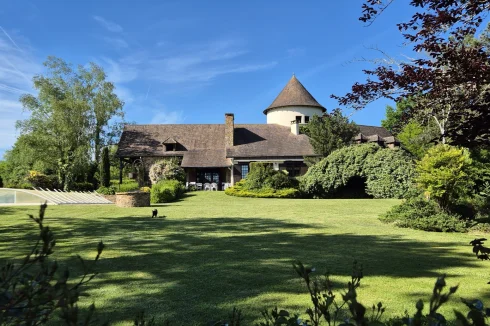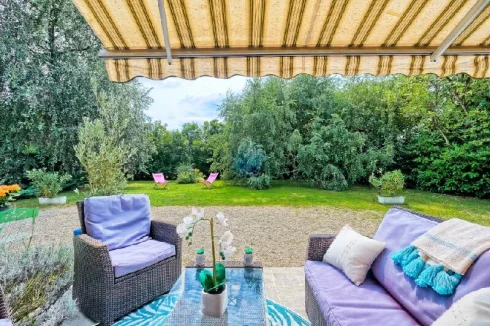Government Tightens Rules on Chambres d’Hotes
Tuesday 04 December 2007
The Government has introduced new regulations, tightening up on the operation of chambres d’hotes, although there remain questions unanswered as their peculiar fiscal status.
The changes are aimed at improving consumer protection, but they are also a response to complaints by the French hotel industry about the relatively unregulated nature of bed and breakfast establishments.
Hitherto, there has now been no clear legal definition of the term ‘chambres d’hotes’, which has allowed many to carry on the business without appropriate registration or controls.
Some owners escape controls and certain taxes by merely letting the rooms as furnished accommodation, without the provision of services.
Others do so by running it as an ‘ancillary’ business, without registering it with the business registration authorities and paying social security contributions.
Yet others offer a large number of rooms, equivalent to a hotel, but without complying with the stricter health and safety requirements of the hotel industry.
It is believed that over 50% of so-called ‘chambres d’hotes’ are not registered with the business registration authorities!
Under the new regulations, all those existing establishments who meet the criteria set out in the circular are required to register themselves with their mairie by 31 Dec 07, on pain of a fine of up to €1500.
This new registration requirement applies, even though existing chambres d’hotes may have already notified themselves to the mairie under current regulations.
Unless the business is registered with the mairie, owners will be unable to display any advertising notice outside of their premises.
The mairie must also be notified of any later changes to the number of rooms offered, or to the opening times of the business. The register of local chambres d’hotes will be open for inspection to any member of the public.
Registration with the mairie is not an authorisation process; they have no jurisdiction to refuse registration, provided the very basic criteria are met (although, there exist separate licence requirements concerning food and drink).
One key criteria now established in the definition is that a chambre d’hote must contain no more than five bedrooms, providing accommodation for a maximum of 15 persons.
Any provision higher than this figure then the establishment loses the status of 'chambre d’hote', and is required to formally register itself as a hotel, or similar establishment, and meet potentially stricter health and safety requirements.
Those who currently offer more than five bedrooms may need now to consider whether to close down one of the rooms, or merge them into a single, larger en suite family room.
Bedrooms located in an annex to the main premises could also be converted into independent furnished accommodation, which would not form part of the equation.
A chambre d’hote is similarly defined under the regulations as an establishment that offers furnished rooms on a nightly basis, with the provision of breakfast included in the price and, at least, cleaning of the room and the provision of linen.
Accordingly, someone who was merely letting out rooms in a house, but who did not provide breakfast as part of the service, would not be classified as a chambre d’hote, but merely as a landlord of furnished accommodation. Likewise, if breakfast was priced separately, then the establishment could well be classified as a hotel.
The circular also makes it clear the designation chambre d’hote only applies where the owner also lives on the premises. This also implies that separate gite accommodation, not annexed to the property, cannot be considered part of the chambre d'hote.
If the criteria cannot be met, then an owner would need to opt for another status, such as a hotel, auberge, maison de charme or gite de sejour, where there are other registration and health and safety compliance requirements to meet.
Lack of Clarity on Fiscal Status
Despite the greater clarity on the definition of chambre d’hote status, there remains a lack of transparency as to the legal and fiscal status of those who run chambres d’hotes.
In particular, the conditions under which owners are required to register with the business registration authorities (and thereby be potentially liable for social security contributions) is not systematic.
Thus, it has never been entirely clear whether those running a chambre d'hote should be classified as an activité civile or as an activité commerciale, each of which has its own legal and fiscal implications. The new guidance does nothing to clear up this confusion.
In a similar vien, those who run a small chambre d’hote business, but do not provide (or do not declare they provide!) a breakfast, incur no liability to social security contributions, as it is not considered they are running an activity that necessitates business registration.
Neither are chambre d’hote owners necessarily obliged to register if the business is complementary to another business or professional activity. As there is no general guidance as to what might be considered an ‘ancillary’ or ‘complementary’ activity, each case is considered on its merits.
Practice also varies from one part of the country to another, with some registration authorities (keen to encourage employment and tourism) willing to turn a blind eye to tight regulation. In turn, the Government seems unwilling or unable to place a stake in the ground and say what is and what is not.
One effect of not being registered as a business is that the landlord does not need to charge either VAT or the taxe de sejour to the client, thereby reducing the tax paper-chase and making their prices more attractive vis a vis potential competitors. Owners under the VAT threshold similarly escape the need to charge VAT.
This whole issue is of increasing importance to expats seeking to find a way of getting access to the health system. Without both business registration and the payment of social security contributions, they would not be entitled to access to the health system through their self-employed status.
One way of escaping all the confusion is to establish a limited company through which to run the business and pay social security contributions. Indeed, if the property is purchased through a property company (SCI), and the company run through a limited company (SARL), it is possible to apply a rental charge to the business, which can offer tax advantages.
Thank you for showing an interest in our News section.
Our News section is no longer being published although our catalogue of articles remains in place.
If you found our News useful, please have a look at France Insider, our subscription based News service with in-depth analysis, or our authoritative Guides to France.
If you require advice and assistance with the purchase of French property and moving to France, then take a look at the France Insider Property Clinic.





